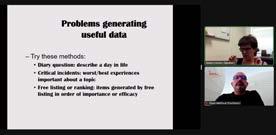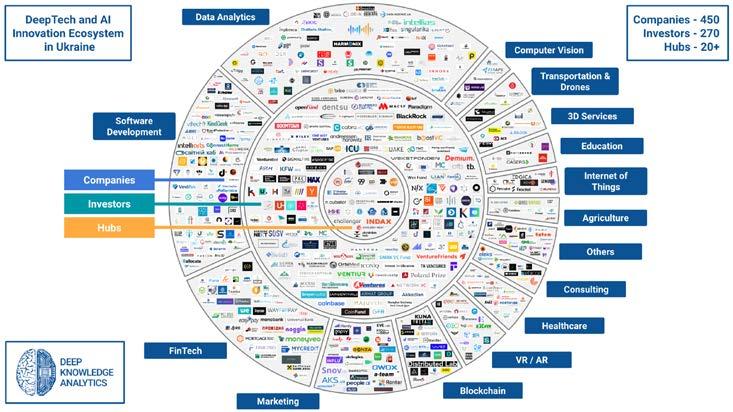
9 minute read
WCM-Q training program provides a boost for budding
Dr. Khaled Machaca (far left), Shaikha AlQahtani (second from right) and Tembela Eweje (far right) with graduates of WCM-Q's Biomedical Research Training Program for Nationals.
WCM-Q training program provides a boost for budding local researchers
Seven aspiring biomedical scientists gained key research skills by completing Weill Cornell Medicine-Qatar’s (WCM-Q) Biomedical Research Training Program (BRTP) for Nationals.
The BRTP is designed to give Qatari nationals and long-term residents who have recently graduated from college a solid foundation in practical lab skills, experience of working on real research projects alongside WCM-Q’s highly qualified scientific faculty, clinical research competencies, and an understanding of key concepts in research administration.
In recognition of their successful mastery of the skills and competencies covered on the program, the interns were presented with certificates of graduation at a special ceremony held at WCM-Q. This year’s ceremony also celebrated the tenth anniversary of the BRTP, which has provided training to 44 interns since its launch in 2011, including this year’s cohort. The program was paused in 2020 during the COVID-19 pandemic but restarted in 2021. In its decade of activity, the BRTP has become an established bridge for college graduates to transition to the workplace and kickstart careers in research, with many who have completed the program going on to gain positions at leading institutions such as Qatar National Research Fund, Anti-Doping Lab Qatar, Sidra Medicine, Qatar University (QU), Hamad Medical Corporation, the Ministry of Public Health, Qatar Foundation, the Ministry of Environment and Climate Change, the Ministry of Transport and Communications, and WCM-Q itself. In addition to providing individuals with key research skills, the wider aim of the BRTP is to produce a generation of highly skilled scientists from the local talent pool in order to endow Qatar with the capacity to build the knowledge-based economy of the future.
Shaikha AlQahtani, BRTP alumna and Research Training Manager at WCM-Q, said: “Although we had to pause the program in 2020 due to the pandemic, we were able to relaunch it and now we are celebrating a decade of running the program. We met amazing researchers during these years, and what pleases me the most is that our own graduates are recommending the program to their friends and relatives. We have a number of our previous BRTP graduates attending our graduation ceremony today celebrating the successful decade with us and I am very happy that we have this strong bond with them.”
The interns who completed the BRTP this year were Alanoud Al-Thani, Jawaher Al-Hamaq, THE BRTP IS DESIGNED TO GIVE QATARI NATIONALS AND LONG-TERM RESIDENTS WHO HAVE RECENTLY GRADUATED FROM COLLEGE A SOLID FOUNDATION IN PRACTICAL LAB SKILLS, EXPERIENCE OF WORKING ON REAL RESEARCH PROJECTS ALONGSIDE WCM-Q’S HIGHLY QUALIFIED SCIENTIFIC FACULTY, CLINICAL RESEARCH COMPETENCIES, AND AN UNDERSTANDING OF KEY CONCEPTS IN RESEARCH ADMINISTRATION.
Aysha AlSaad, Anoud Duale, Hana Mohamed, Rwedah Ajeeb, and Sondos Yousef. All are graduates of Qatar University, apart from Anoud Duale, who graduated from Bangalore University. The WCM-Q faculty who provided mentorship were Dr. Nancy Nader, Assistant Professor of Research in Physiology and Biophysics; Dr. Anna Halama, Assistant Professor of Research in Physiology & Biophysics; Dr. Amal Robay, Assistant Professor of Research in Genetic Medicine/Director of Research Compliance; Dr. Ali Sultan, Professor of Teaching in Micro,Biology and Immunology; Dr. Laith Abu-Raddad, Associate Dean for Extramural Research Funding/Professor of Population Health Sciences/Director of the Biostatistics, Epidemiology, and Biomathematics Research Core; and Dr. Frank Schmidt, Director of the Proteomics Core & Associate \ Professor of Biochemistry.
QU biology graduate Jawaher Al-Hamaq interned on the BRTP under the mentorship of Dr. Nader. Jawaher said: “The BRTP program offers a great insight about the backstage work of research and how to apply previous knowledge gained in my undergraduate studies. Being involved in a real research project and overcoming obstacles along the way made it possible to acquire essential skills as an upcoming researcher. Such experience would not be gained without the guidance of phenomenal researchers such as Dr. Nader, who presented all the key attributes of a researcher. The experience was fruitful, and I am pleased to have completed the program.”
WCM-Q’s Dr. Khaled Machaca, Professor of Physiology and Biophysics/Senior Associate Dean for Research, Innovations, and Commercialization, said: “I offer my warmest congratulations to our latest cohort of BRTP graduates, and my thanks to our growing community of BRTP alumni for continuing the mission of the BRTP through building excellent careers in research in Qatar. The success and national contribution of our ambitious, talented, and dedicated BRTP graduates are a wonderful asset for the State of Qatar and its booming R&D sector.”
Dr. Khaled Machaca of WCM-Q
Healthcare professionals boost research skills with WCM-Q course
Healthcare professionals in Qatar enhanced their understanding of qualitative research thanks to a course delivered by the Division of Continuing Professional Development at Weill Cornell Medicine-Qatar (WCM-Q).
The five-day course demonstrated the merit of using qualitative research in clinical settings, where it can help researchers gain greater understanding of patient experiences than when using quantitative methods alone. The course also equipped participants with an understanding of the operation of the scientific process when conducting qualitative research and explained how to integrate scientific rigor and ethics into qualitative research studies.
Dr. Ziyad Mahfoud, Professor of Research in Population Health Sciences at WCM-Q, and Dr. Gladys Honein-AbouHaidar, Assistant Professor in the Hariri School of Nursing at the American THE COURSE, TITLED INTRODUCTION TO QUALITATIVE RESEARCH, WAS ACCREDITED LOCALLY BY THE MINISTRY OF PUBLIC HEALTH’S DEPARTMENT OF HEALTHCARE PROFESSIONS – ACCREDITATION SECTION AND INTERNATIONALLY BY THE ACCREDITATION COUNCIL FOR CONTINUING MEDICAL EDUCATION (ACCME). University of Beirut, directed the course. Dr. Mahfoud said: “Developing a good understanding of the fundamentals of qualitative research is very useful for healthcare researchers because it provides opportunities for gaining insight into the context and complexity of the experiences of patients in clinical settings. It can therefore help us to understand the meaning and relevance of observable phenomena in ways that elude quantitative research methods.”

Dr. Gladys Honein-Abou Haidar and Dr. Ziyad Mahfoud
In a preemptive effort to trigger post-war capital inflow into Ukraine Data analytics platform launched to attract $1 billion in AI and DeepTech investments to Ukraine

In a preemptive effort to trigger capital inflow into Ukraine for the post-war era, Deep Knowledge Analytics (DKA), the flagship subsidiary of Deep Knowledge Group, announced the launch of the beta version of a data analytics platform that aims to attract $1 billion in AI and DeepTech investments to Ukraine over a foreseeable period of time. DKA has previously created similar platforms that cater to DeepTech sectors in the UK and Switzerland.
DKA’s post-war rebuilding effort aims to support Ukrainian entrepreneurs and companies in finding the right partners, raising capital and gaining access to the data, tools and expertise they need to set up and scale their businesses. The platform will also allow Ukrainian companies to automate and manage their relationships with existing and potential partners and investors. It enables international investors to identify, assess and directly invest, choosing from 450 Ukrainian DeepTech and AI companies that were mapped in DKA’s recent DeepTech and AI Ecosystem in Ukraine report. An analytical case study also details 250 investment funds and angel investors represented on the platform.
The influx of capital this platform aiming to achieve is meant to shift Ukraine’s pre-war posiDEEP KNOWLEDGE ANALYTICS AIMS TO HELP UKRAINIAN ENTREPRENEURS AND BUSINESSES FIND THE RIGHT PARTNERS, INVESTORS, DATA, TOOLS AND EXPERTISE.
tion from a tech outsourcing hub to becoming one of the leading international tech centres in Europe following the war. In 2021, Venture Capital and Private Equity investments in Ukrainian companies applying AI stood at $440.9 million, significant increase from the drop in 2020.
According to a Ukrainian Startup Fund survey, since the start of the war, 71% of Ukrainian startups haven't relocated abroad, 39% are dealing with quite a short cash runway and 28% decided to pause their operations. The DeepTech and AI platform represents the cornerstone of tech business recovery, which is a key pillar in the redevelopment of the overall Ukrainian economy.
Emma Brodina, Deputy Managing Partner at Deep Knowledge Group, said: “Ukraine stands every chance of becoming a new DeepTech and AI hub in the heart of Europe. We are glad to assist Ukrainian companies in their fundraising by providing the first iteration of our analytical platform, which will connect investors and startups, inform investment decisions, and enhance tech innovation across the country. We are working on the next iteration which will also facilitate LegalTech and InvestTech components, accelerating investments in Ukrainian tech companies by international investors.”
Prior to the war, Ukraine held a leading position in the AI field across Eastern Europe. According to the 2020 Oxford Government AI Readiness Index, Ukraine was the number one AI provider in Eastern Europe with 150 recognized companies. Capitalizing on the country’s strong tech foundation, this platform aims to provide the sector with a much-needed push for recovery. And according to IT Ukraine Association, the growth rate of the IT services market in Ukraine stands at 20-25% annually as of the beginning of 2022.
“Ukraine's unique approach to regulating private medical facilities creates a rare opportunity for the most advanced regenerative treatments. Precision Medicine empowered by AI and DeepTech synergy will be a crucial element in post-war national health restoration. The emerging sector of Regenerative Medicine and Digital Healthcare solutions will provide a baseline for the country's recovery”, said Andrii Savitskyi, Head of Longevity Analytics at Deep Knowledge Group.

The world’s AI industry players have always recognized the talent of Ukrainian AI and Machine Learning engineers. Ukrainians have been known to hold leading positions in top AI companies globally. Due to the establishment of specialized R&D centres in the country, Ukrainian specialists are able to exchange tech knowledge with peers from global markets including the US and Europe. In addition to relatively high levels of English language proficiency, proactivity and flexibility, Ukrainian AI engineers strive to constantly enhance their expertise by keeping abreast of the latest global tech trends and developments.
“AI and DeepTech technologies have a direct impact on economic growth. An example is the use of space technologies for precision agriculture, when AgriTech companies, using satellite vision combined with Data Science and AI, can apply predictive analytics of soil, weather and other factors for more efficient harvesting”, said Dmytro Kharchenko, Head of SpaceTech Analytics.
DeepTech and AI companies have a multiplier effect on other sectors of the economy due to their disruptive nature and practical applications. In this context, a $1 billion investment in Ukrainian tech companies will have a profound impact on the country’s economy. THE PLATFORM ENABLES INTERNATIONAL INVESTORS TO IDENTIFY, ASSESS AND DIRECTLY INVEST IN ADVANCED TECH COMPANIES RELATED TO UKRAINE.
Ukrainian DeepTech ecosystem mindmap. Source: DeepTech and AI Ecosystem in Ukraine, Deep Knowledge Analytics (Interactive map)
Link to the Ukrainian AI and DeepTech data analytics platform: www. invest-in-ukraine.tech










